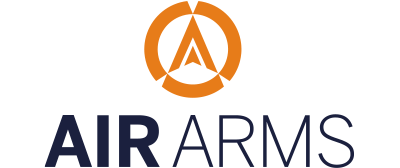
What is the law for air rifles in the UK?1 Comment22 March 2024 | Air Arms
Are you looking for the relevant legislation and laws on air rifles in the UK? Are you confused about what exactly is allowed and where it should be purchased? Don't worry—you are not alone! Whether you're a seasoned shooter or just starting your journey into the world of air rifles, staying on the right side of the law is crucial. With a complex set of laws in the UK, many people get lost in what is legal or illegal. In this blog post, we will provide an overview of everything that one needs to know about air rifles and their use in this country - so that you can feel confident in your next shooting endeavour. The LawKnowing the legal requirements surrounding ownership is important if you're considering buying an air rifle in the UK. Air guns are a popular pastime in the UK, with many enthusiasts enjoying shooting as a hobby. But before you consider getting yourself an air rifle, it's essential to understand the legal requirements surrounding its ownership. In the UK, while not all air guns are classified as firearms, some are subject to the same regulations set out by the government and do require a firearms licence. Let's look closer at how air guns are related to firearms within the law. 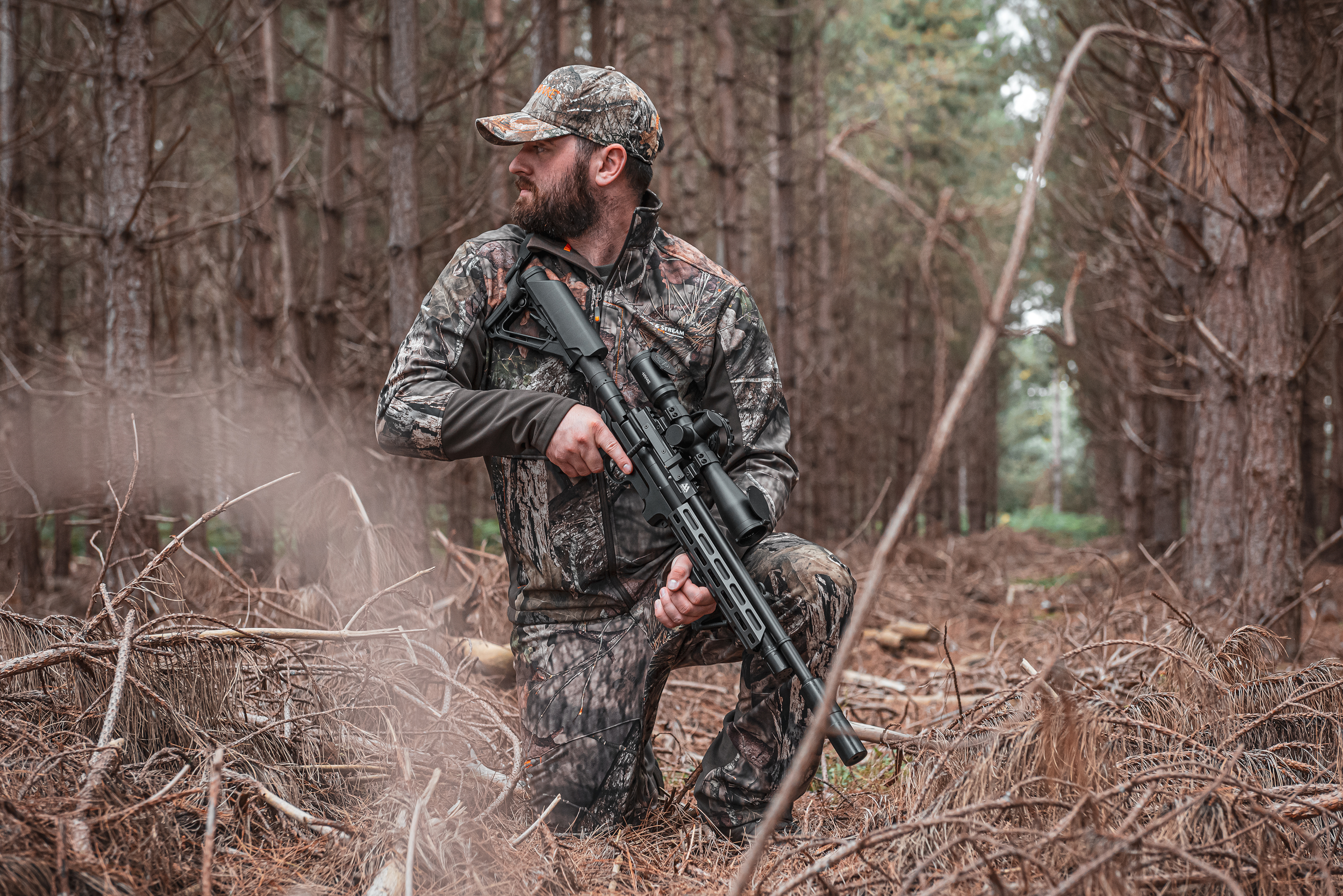 Firearms certificateLow-powered air weapons do not require a licence unless classified as "especially dangerous" under the Firearms (Dangerous Air Weapons) Rules 1969. The sale of these air weapons is also subject to restrictions. According to the rules, an air pistol is considered "especially dangerous" if it can discharge a missile with kinetic energy exceeding six foot-pounds, or 12 foot-pounds for air rifles. What does this mean for air rifles?If you are over 18 and have a valid reason for owning an air rifle—such as pest control or target shooting—you can purchase and own one without a licence. However, you can purchase two types of air rifles—both have their own restrictions. Less powerful air rifles: In the UK, air rifles with a muzzle energy under 12ft/lb are not considered firearms and only require a general licence (which you do not have to apply for and is provided via the government). More powerful air rifles: In the UK, air rifles with a muzzle energy of more than 12ft/lb are considered firearms and require a licence to possess or use. This is because the power they hold can be fatal and require firmer regulations from the consumers. Let's look at air rifles that require a licence, how to get them and what criteria you need to meet to be able to use them. 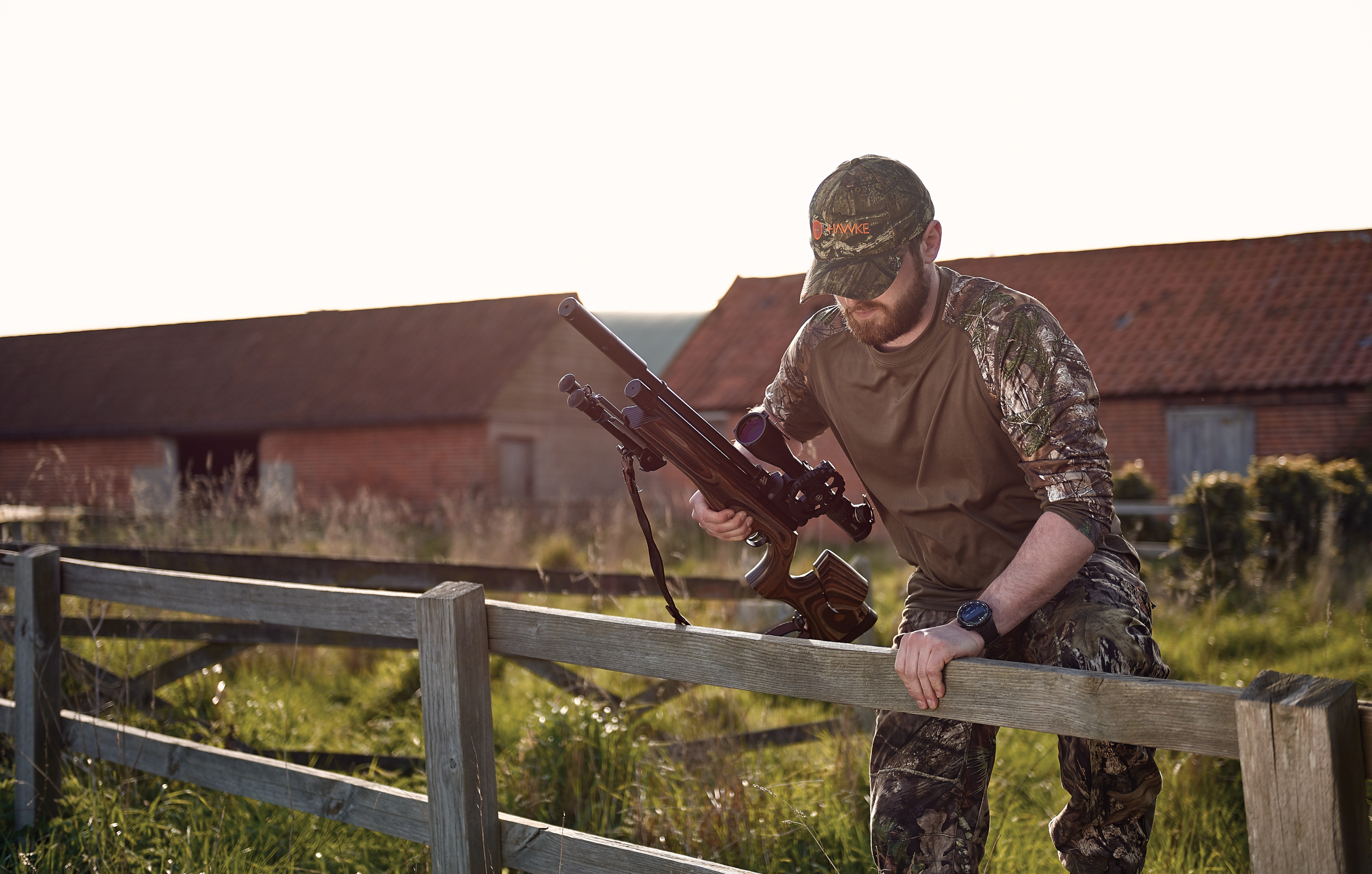 How to get a firearms certificate for your powerful air rifleThe local police forces are responsible for issuing firearm and shotgun certificates and licensing firearms dealers. In England and Wales, the Home Office evaluates applications for permission to possess prohibited weapons, like handguns, on behalf of the Secretary of State. To find out how to apply for a licence, you can check out our 'How to get an air rifle licence blog', but we will briefly go over the criteria and process here. AgeTo apply for a firearms certificate in the UK, you must be 14 years of age. While you must be 18 or over to purchase and own your air rifle, you can use and borrow it (with supervision) from 14. Good ReasonCandidates must be able to provide the police with evidence that they have a legitimate and regular need for possessing firearms. This may include reasons related to their occupation, sporting activities, and leisure pursuits (such as collecting or research). The final decision on what qualifies as a valid reason rests with the chief officers, who evaluate each case individually based on its merits. Medically and morally soundTo possess, purchase, or acquire a firearm, individuals must undergo an assessment by the licensing authority, typically the police, to ensure they do not pose a threat to public safety and have a valid reason for owning the firearm. This requirement also extends to organisations such as target shooting clubs, museums, and firearms dealers who need a licence to possess or use firearms.
Purchasing the certificateThe final step is purchasing the certificate. This can typically be done online or via mail. Check out your local police website for information, as this process may differ from jurisdiction. Supervision regulationsIf you are under 18 years old, it doesn't mean that you are completely prohibited from using air rifles. 14-17 years of age
Under 14
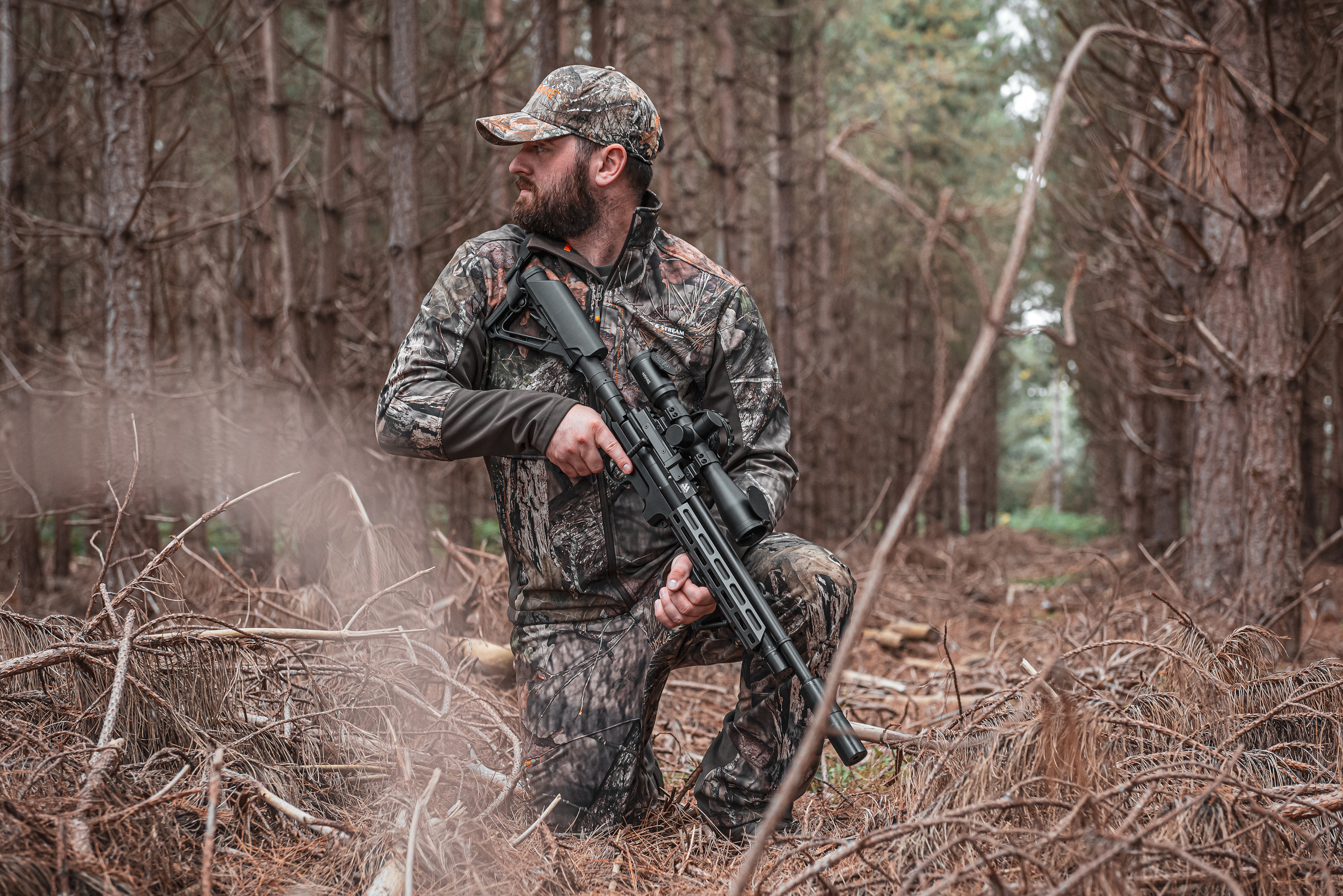 Codes of conductWhen it comes to codes of conduct with air guns - from PCP Air Rifles to spring air rifles, there are various regulations and guidelines in different jurisdictions. Here are some key points to consider: Safety Rules:Safety should always be a top priority when using air rifles or engaging in any shooting activity. The National Standard Three-Position Air Rifle Rules emphasise the importance of following safety rules in range or target shooting activities. Code of Practice:Organisations like The British Association for Shooting and Conservation provide a code of practice for air rifle users, which offers guidance on safe and responsible shooting practices. This code emphasises the safe conduct of air rifle shooting. What you can shoot:The Wildlife and Countryside Act 1981 defines which animals can be legally hunted or shot with air rifles. Common species like rabbits and squirrels are often considered fair game. However, it is essential to check the specific regulations in your area, as some species may be protected or have certain restrictions. When small game hunting with an air rifle, it is essential to prioritise safety, accuracy, and humane shooting. Shots should be taken within a range for ethical and effective kills. Taking chances shots at greater ranges can lead to ineffective kills and unnecessary suffering. Responsible hunting with air rifles involves respecting wildlife and their habitats. Hunters should follow sustainable practices, ensuring that they do not harm the overall population of the targeted species or damage the environment. Adhering to bag limits and seasons and avoiding shooting protected species is crucial for wildlife conservation. Where can you shoot air rifles?The rules regarding using air rifles on private property, including gardens and land, may vary depending on the jurisdiction. Before using an air rifle in such settings, it is essential to familiarise yourself with the local laws and regulations. Here are some general points to consider: Legal Restrictions:Some areas or states have restrictions on shooting air rifles on private property, particularly in residential areas or within city limits. It is important to check local zoning regulations and any applicable laws that may prohibit shooting firearms, including air rifles, in certain areas. Backstops and Safety Measures:When using an air rifle on private property, it is crucial to have appropriate backstops in place to ensure your safety, that of others, and that of neighbouring properties. Backstops should be able to effectively stop and contain pellets, preventing them from travelling beyond the intended shooting area. Consideration for Neighbors:Even if shooting air rifles on private property is legal, it is essential to be considerate of your neighbours. Be mindful of noise levels, potential hazards, and any concerns they may have. Communication and mutual understanding can help maintain good relationships within the community. Safe Handling and Responsible Shooting:Regardless of where you are shooting, always prioritise safety. Familiarise yourself with proper handling techniques, follow all safety guidelines provided by the manufacturer, and use the air rifle responsibly. This includes treating the air rifle as a firearm, even if it is not legally classified in certain jurisdictions. Here are some of the highlights of the general licence within the UK to comply with excellent and legal air gun practice.
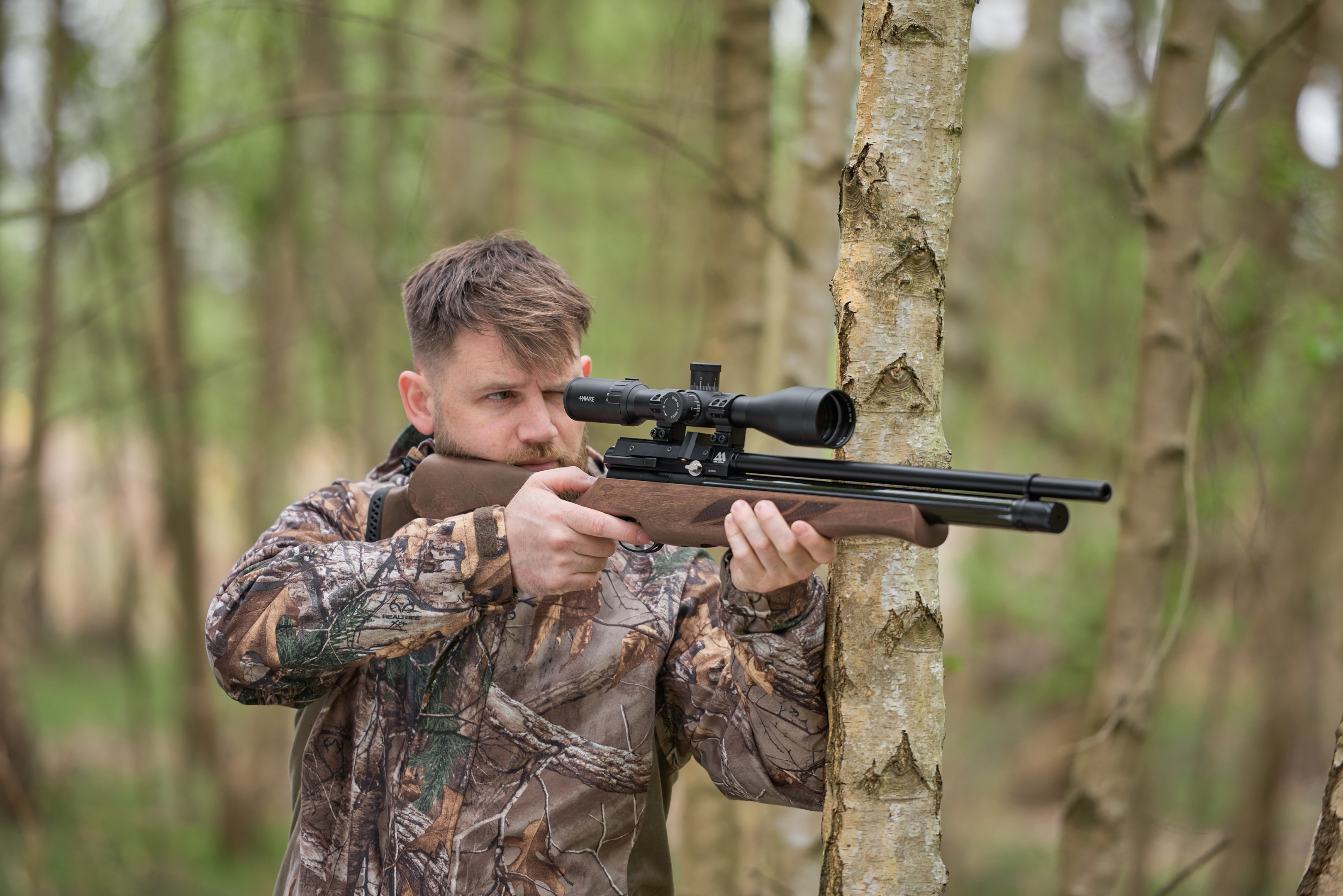 Final thoughtsTo sum up, air rifles present an excellent opportunity for people to participate in target shooting and hunting. Nevertheless, laws and safety measures must be rigorously adhered to to ensure participants have fun and stay safe. Minors must understand the responsibility of using an air rifle and handle it at all times in the presence of an adult. Those interested in using an air rifle should first familiarise themselves with UK air rifle laws and abide by them for any activity involving a gun. Moreover, we urge everyone to take the necessary steps to protect themselves, their property, and their loved ones when handling firearms. To find out more about air rifles—from spring-powered air rifles to PCP air guns and CO2 and break-barrel pellet guns—you can check out our 'What is an Air Rifle?' blog here. While there isn't an all-time best air rifle, there will be the perfect air rifle for you and your needs. Taking these precautions can go a long way toward ensuring everyone's safety while using these recreational devices. As one of the leading manufacturers at Air Arms, we're here to help you get started and deliver airguns to all our customers ensuring safety and quality. So why wait? Contact us for any advice on starting target practice or hunting. |
|
this information only covers England and Wales. An air weapon certificate is required to possess an air weapon in Scotland.